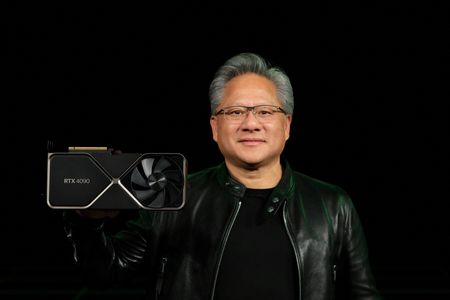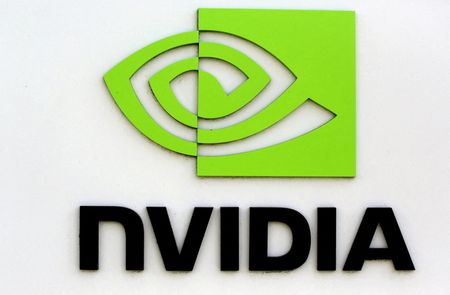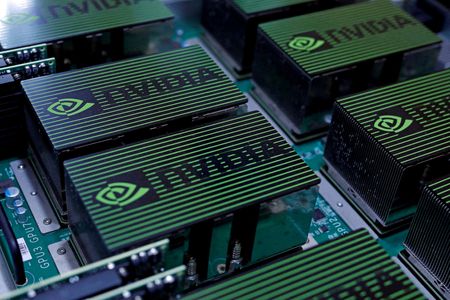By Stephen Nellis
(Reuters) – Nvidia Corp on Tuesday announced new flagship chips for video gamers that use artificial intelligence (AI) to enhance graphics, saying it has tapped Taiwan Semiconductor Manufacturing Co to make the processors.
Nvidia has gained attention in recent years with its booming data center business, which sells chips used in artificial intelligence work such as natural language processing. But the company’s roots are in graphics chips, which still provided 59% of its $26.9 billion in revenue in its most recent fiscal year.
In a streamed online keynote address, Nvidia Chief Executive Jensen Huang on Tuesday introduced the company’s newest “Ada Lovelace” series of graphics chips, named for the 19th-century British mathematician regarded as an early pioneer in computer science.
The flagship GeForce RTX 4090 model of the chip will sell for $1,599 and go on sale on Oct. 12. Two less costly RTX 4080 models will start at $899 and $1,199, respectively, and go on sale in November.
Nvidia designs its chips but has them manufactured by partners. Huang said the chips will be made by Taiwan Semiconductor Manufaturing (TSMC) with its “4N” chip manufacturing technology, a change from Nvidia’s previous generation of flagship gaming chips, which were made by Samsung Electronics Co Ltd.
The new Lovelace chips use AI to improve video game graphics. Computing what each pixel on the screen should look like is hard, so Nvidia chips use AI to predict how some pixels should look without doing the entire set of computations. The Lovelace chips have extended that technique to generate entire frames of a game using AI.
In a media briefing, Matt Wuebbling, vice president of global GeForce marketing at Nvidia, said the Lovelace chips will be available for sale globally and are not affected by a recently imposed U.S. ban on selling Nvidia’s top data center AI chips to China.
Wuebbling also said the chips will not contain a so-called hash-rate limiter, a technology Nvidia put in its previous generation of chips to limit their use in mining the cryptocurrency Ethereum, because of recent changes in how that currency is tracked.
(Reporting by Stephen Nellis; editing by Jonathan Oatis)


